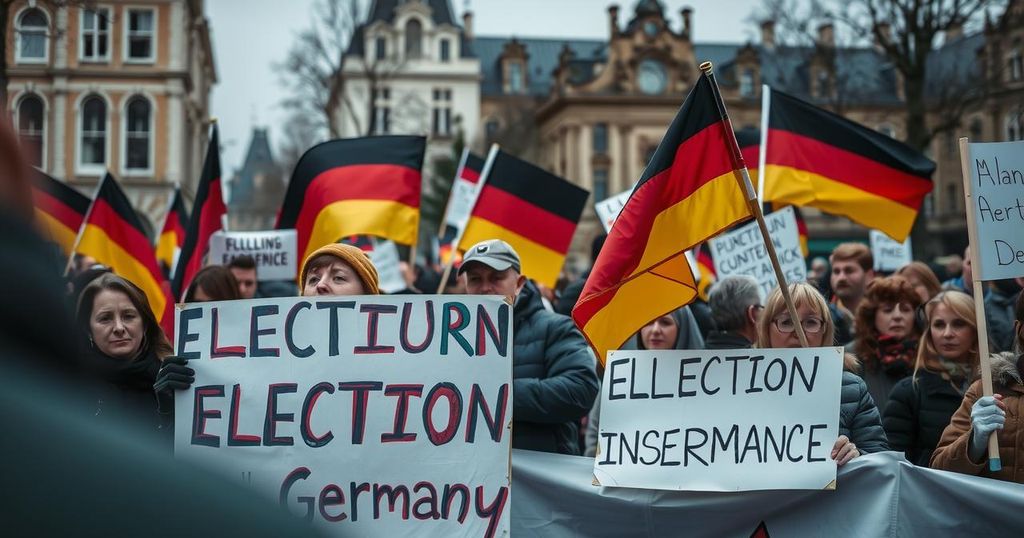Germany Criticizes Elon Musk’s Support for Far-Right AfD Party

German leaders have condemned Elon Musk for his support of the far-right AfD party on X, viewing it as inappropriate electoral influence. Musk called AfD the ‘voice of the people’ and criticized immigration policies. His remarks have heightened concerns about social media’s role in elections, especially with upcoming elections in February 2025, amidst growing scrutiny on X’s content moderation practices.
Germany has expressed strong disapproval of Elon Musk’s recent endorsement of the far-right Alternative for Germany (AfD) party, which he shared on his social media platform, X. Politicians across the German political spectrum criticized Musk’s comments as an unacceptable interference in the nation’s democratic election process. Musk asserted that the AfD embodies the sentiments of the populace and has openly criticized the German government’s immigration policies. In an opinion piece for a German publication, he reiterated his belief that the AfD could provide solutions for Germany’s challenges.
The backlash was immediate and fierce, with notable figures such as government spokeswoman Christiane Hoffmann remarking, “It is a fact that Elon Musk is trying to exert influence on the parliamentary election.” This discontent escalated to the resignation of an editor from the newspaper wherein Musk’s opinion piece was published. The situation unfolds against the backdrop of Germany’s preparations for elections in February 2025, following significant state elections where the AfD has gained considerable popularity.
This controversy has rekindled fears regarding the influence of social media on political dialogue. Since assuming control of X in 2022, Musk has faced scrutiny over the platform’s management of content and adherence to established moderation policies. This scrutiny has intensified in light of the European Union’s newly enacted Digital Services Act, aimed at ensuring transparency and accountability for social media platforms, especially during electoral periods. Consequently, in December 2023, formal actions were initiated against X by authorities enforcing these regulations. Germany’s response includes bolstered electoral oversight after previous concerns about disinformation tactics employed during elections, with certain factions of the AfD designated as extremist by national security agencies.
The recent engagement of social media in political discourse has prompted significant debates regarding its impact on democratic processes, particularly in Europe. Following Elon Musk’s acquisition of X in 2022, concerns have arisen regarding content moderation and the potential amplification of extremist viewpoints. The Digital Services Act, established by the European Union, necessitates greater transparency from social media platforms, especially during election cycles, after allegations of disinformation campaigns were reported in past elections. By labeling segments of the AfD as extremist, the German government is taking a cautious approach towards ensuring that democratic principles are upheld during a time of rising political tensions and the growth of far-right movements.
In summation, Elon Musk’s endorsement of the AfD has sparked widespread condemnation from German political leaders, who view it as a harmful intrusion into their electoral processes. This incident highlights the delicate interplay between social media influence and democratic integrity, especially given upcoming elections. The ongoing scrutiny of X’s content policies under the Digital Services Act underscores the critical need for accountability and transparency to safeguard the electoral landscape from extremist ideologies.
Original Source: www.jurist.org








